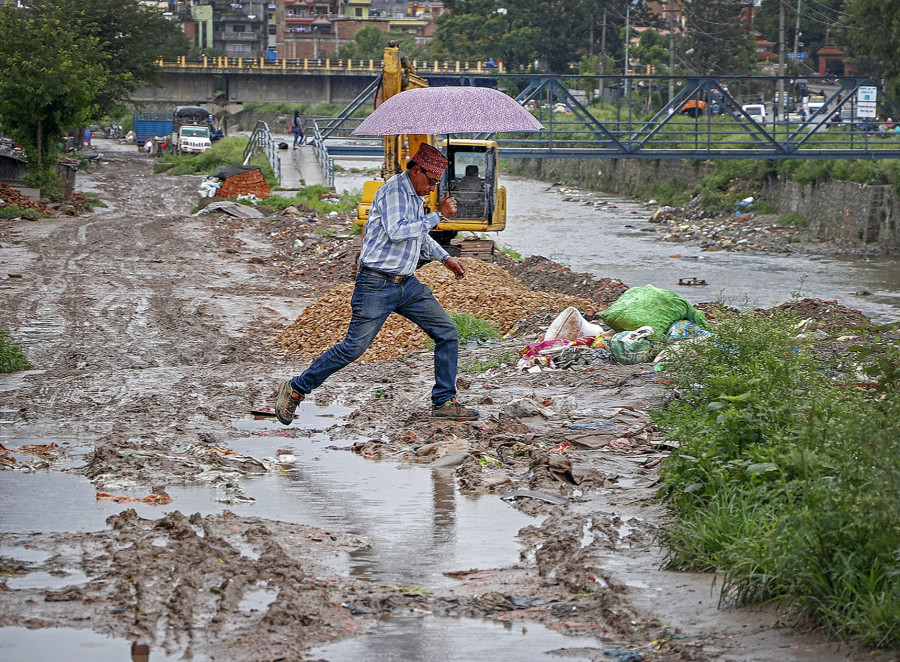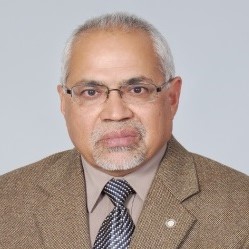Columns
Time to cleanse local governments
If the parties field incompetent and corrupt candidates, voters should reject them.
Dinesh Pant
Preparations are underway for fresh local elections slated to be held in mid-May. Nepalis will elect 37,020 representatives (including 1,799 nominated members) to different positions in 753 local units. The polls are expected to bring some significant changes to local governments by replacing existing political representatives and re-electing others. However, whoever gets elected should bring positive changes in the collective mindsets of the elected representatives and transform their working policies, systems, procedures and service delivery. The inefficient and corrupt practices that have been observed at the local level in recent years have posed severe challenges to executing federalism as envisaged by the constitution. The upcoming election also has a lot to contribute towards shaping a new public image of local governance, which is currently dim and blurred.
Nepal has made some good progress towards being politically and administratively structured into a federal state in the last four years, but there are still many serious shortcomings. The main issue is with the functioning of the provincial and local governments and how the federal (central) government is functioning to execute federalism in practice. Although local governments, unlike provincial governments, are not entirely new entities in the country in that they existed as local bodies even in the past, many local leaders elected in 2017 lacked experience in practising local governance in the federal mode; and the necessary policies and programmes, rules, work methods and staff were missing. Nevertheless, a few of them have emerged above disorder by tackling different obstacles and making positive contributions at the local level.
Advocating federalism in Nepal, the top political leaders have promised that they will transfer Singha Durbar (symbolising the power centre) to every village by devolving the state's power to the local levels so that people can participate in making and executing locally needed policies, laws and development programmes, and thereby make public services easily accessible to all. In the early years of federalism, the elected local representatives also cultivated hope and enthusiasm among locals, which unfortunately did not last long. Many of them allegedly started functioning by putting their vested interests in the centre by misusing the available resources, disregarding fundamental values of good governance and showing indifference to the people's sufferings and needs. Centrally deputed administrators, who could not cooperate with local leaders to commit irregularities, were often ousted within a few months. It is natural for every citizen to gradually realise that not just Singha Durbar but corruption and irregularities too have reached the local level, equating to the federalisation of corruption.
Irregularities and corruption
Of the complaints received at the Commission for the Investigation of Abuse of Authority (CIAA), complaints related to federal affairs (mostly dealing with irregularities and corruption at the local level) top the list among public service sectors like education, land reform, forest and health. The proportion of complaints related to federal affairs has increased from 18 percent in fiscal 2017-18 to 30.7 percent in 2019-20 and 32.7 percent in 2020-21. Local governments were found to have shown some programmes or projects in the "completed" category for consuming the allocated budget funds even though they had not even been initiated.
According to the Auditor General's Report, financial irregularities at local governments, prone to corruption of various forms, swelled to Rs40.8 billion in fiscal 2019-20 from Rs16.51 billion in 2016-17 when elected local governments began functioning in the federal style. Such irregularities (by percentage of unsettled accounts) in fiscal years 2018-19 and 2019-20 are higher (5 percent) than those of the federal and provincial governments (2.8 and 2.7 percent respectively) in fiscal 2019-20. Since 2017, dozens of local governments have failed even to get their annual programmes and budgets approved by the respective local assemblies as of the middle of the fiscal year.
Serious problems exist in local governments because of uncertainty over the adjustment and supply of the required staff, and the formulation of the required laws, particularly those that need to be preceded by federal laws passed by Parliament. Unfortunately, many local officials have allegedly been misusing such uncertainty to commit irregularities and corruption, whether in designing development programmes, policies and rules or executing them. Such cases of anomalies in the functioning of local governments have also undermined those who have been able to work up to the mark through their virtues.
The oft-repeated reason for corruption at the local, provincial and federal levels is the high campaign expenditure that election candidates have to bear, which induces them to recoup the costs by manipulating institutional rules and procedures, misusing the entrusted authorities, paying back business persons by awarding contracts and so on. The recent code of conduct issued by the Election Commission for local elections limiting the candidate's expenses and barring related business persons from being a candidate, if followed strictly by political parties and candidates, should help address this issue positively.
Transparency and accountability
The need to control irregularities and corruption at the local level should receive top priority in democracy for cutting the cost of development and public services and protecting people's right to be a beneficiary from state services. The Election Commission, along with other watchdog agencies like the CIAA and the Office of the Auditor General and civil society, should strengthen their field-based units to investigate cases of irregularities and corruption, and facilitate the design and execution of the required work systems to ensure transparency and accountability in local governments.
National leaders should take the lead on this front, from fielding candidates for the election to making them perform their duties honestly, if they are committed to promoting and maintaining the fundamental values of good governance and achieving national prosperity through the federal governance system. The forthcoming election has given citizens another opportunity to choose competent and honest candidates without any partisan consideration. If the political parties field the same old or new incompetent and corrupt candidates for their petty interests, voters should use their conscience to reject them.




 8.79°C Kathmandu
8.79°C Kathmandu















